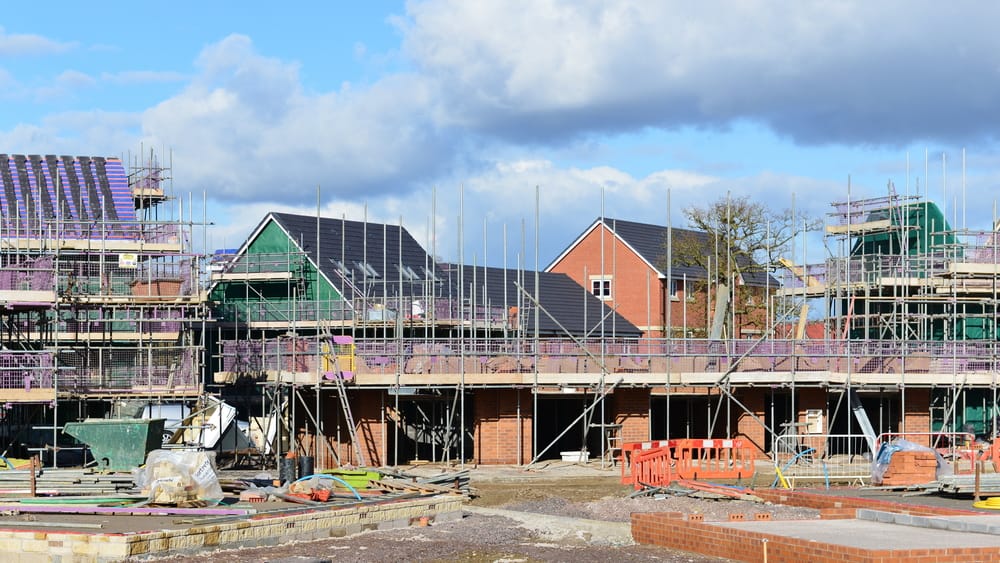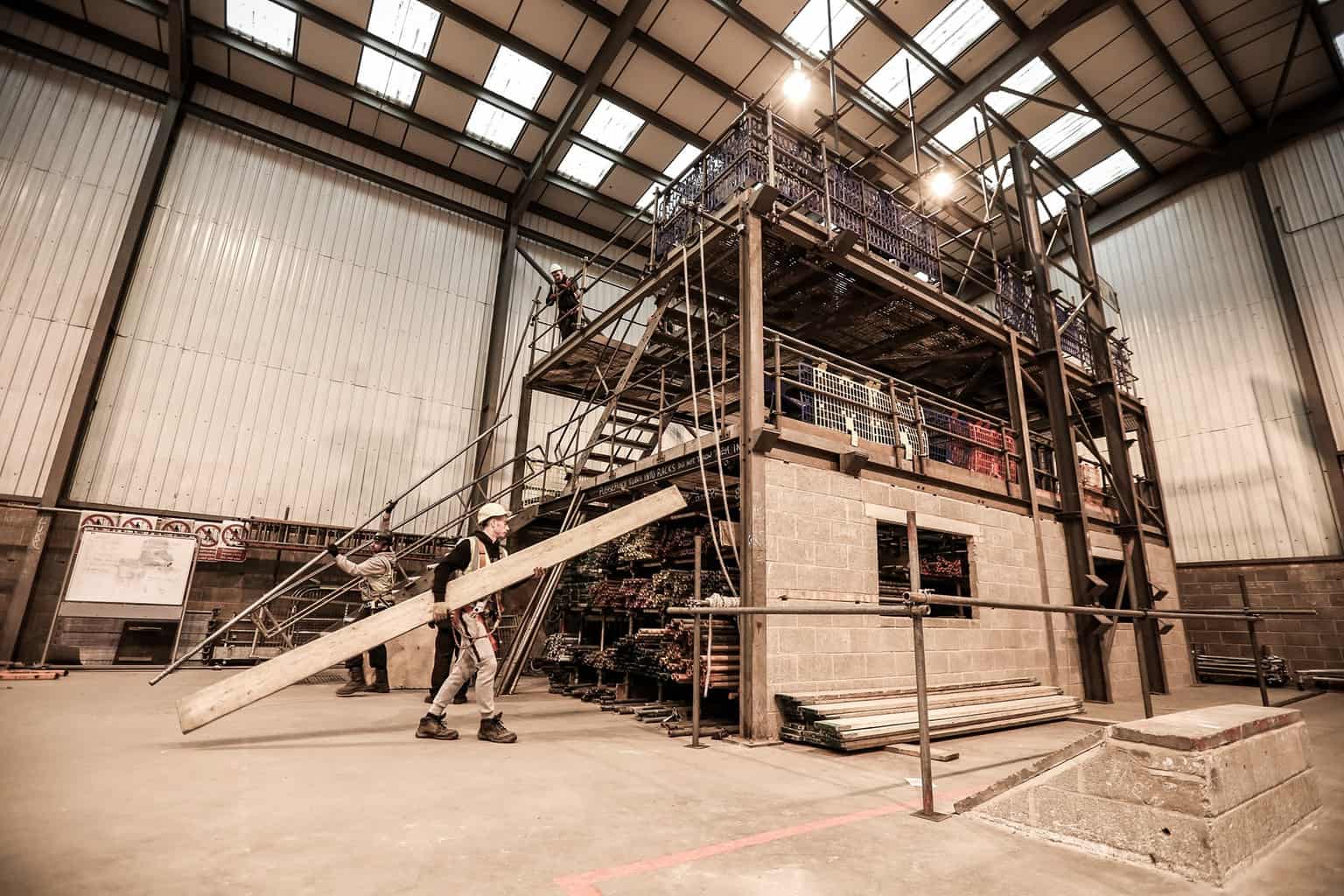As work continues on some UK construction sites during the Coronavirus pandemic the Construction Leadership Council (CLC) has published a Site Operating Procedures paper.
There are currently no specific procedures for the scaffolding industry to implement the government’s social distancing requirements while on construction sites. But with support from Build UK, the CLC has written guidance on Site Operating Procedures – Protecting Your Workforce.
CLC has produced the following guidance:
Construction sites operating during the Coronavirus Covid-19 pandemic need to ensure they are protecting their workforce and minimising the risk of the spread of infection.
This guidance is intended to introduce consistent measures on sites of all sizes in line with the Government’s recommendations on social distancing.
These are exceptional circumstances and the industry must comply with the latest Government advice on Coronavirus at all times.
The health and safety requirements of any construction activity must also not be compromised at this time. If an activity cannot be undertaken safely due to a lack of suitably qualified personnel being available or social distancing being implemented, it should not take place.
We are aware that emergency services are also under great pressure and may not be in a position to respond as quickly as usual.
Sites should remind the workforce at every opportunity of the Site Operating Procedures which are aimed at protecting them, their colleagues, their families and the UK population.
If a site is not consistently implementing the measures set out below, it may be required to shut down.
Self-Isolation
Anyone who meets one of the following criteria should not come to site:
• Has a high temperature or a new persistent cough – follow the guidance on self-isolation
• Is a vulnerable person (by virtue of their age, underlying health condition, clinical condition or are pregnant)
• Is living with someone in self-isolation or a vulnerable person.
Procedure if Someone Falls Ill
If a worker develops a high temperature or a persistent cough while at work, they should:
• Return home immediately
• Avoid touching anything
• Cough or sneeze into a tissue and put it in a bin, or if they do not have tissues, cough and sneeze into the
crook of their elbow.
They must then follow the guidance on self-isolation and not return to work until their period of self-isolation has
been completed.
Travel to Site
Wherever possible workers should travel to site alone using their own transport and sites need to consider:
- Parking arrangements for additional cars and bicycles
- Other means of transport to avoid public transport e.g. cycling
- Providing hand cleaning facilities at entrances and exits. This should be soap and water wherever
possible or hand sanitiser if water is not available - How someone taken ill would get home.
Site Access Points
- Stop all non-essential visitors
- Introduce staggered start and finish times to reduce congestion and contact at all times
- Monitor site access points to enable social distancing – you may need to change the number of access
points, either increase to reduce congestion or decrease to enable monitoring - Remove or disable entry systems that require skin contact e.g. fingerprint scanners
- Require all workers to wash or clean their hands before entering or leaving the site
- Allow plenty of space (two metres) between people waiting to enter site
- Regularly clean common contact surfaces in reception, office, access control and delivery areas e.g.
scanners, turnstiles, screens, telephone handsets, desks, particularly during peak flow times - Reduce the number of people in attendance at site inductions and consider holding them outdoors wherever
possible - Drivers should remain in their vehicles if the load will allow it and must wash or clean their hands before
unloading goods and materials.
Hand Washing
- Provide additional handwashing facilities to the usual welfare facilities if a large spread out site or significant
numbers of personnel on-site - Ensure soap and fresh water is readily available and kept topped up at all times
- Provide hand sanitiser where hand washing facilities are unavailable
- Regularly clean the hand washing facilities and check soap and sanitiser levels
- Provide suitable and sufficient rubbish bins for hand towels with regular removal and disposal.
- Sites will need extra supplies of soap, hand sanitiser and paper towels and these should be securely
stored.
Toilet Facilities
- Restrict the number of people using toilet facilities at any one time e.g. use a welfare attendant
- Wash hands before and after using the facilities
- Enhance the cleaning regimes for toilet facilities particularly door handles, locks and the toilet flush
- Portable toilets should be avoided wherever possible, but where in use these should be cleaned and
emptied more frequently - Provide suitable and sufficient rubbish bins for hand towels with regular removal and disposal.
Canteens and Eating Arrangements
- With cafés and restaurants having been closed across the UK, canteens cannot operate as normal. Whilst there is a requirement for construction sites to provide a means of heating food and making hot drinks, these are exceptional circumstances and where it is not possible to introduce a means of keeping equipment clean between use, kettles, microwaves etc. must be removed from use.
The workforce should also be required to stay on-site once they have entered it and not use local shops. - Dedicated eating areas should be identified on-site to reduce food waste and contamination
• Break times should be staggered to reduce congestion and contact at all times - Hand cleaning facilities or hand sanitiser should be available at the entrance of any room where people eat and should be used by workers when entering and leaving the area
- The workforce should be asked to bring pre-prepared meals and refillable drinking bottles from home
- Workers should sit 2 metres apart from each other whilst eating and avoid all contact
- Where catering is provided on-site, it should provide pre-prepared and wrapped food only
- Payments should be taken by contactless card wherever possible
- Crockery, eating utensils, cups etc. should not be used
- Drinking water should be provided with enhanced cleaning measures of the tap mechanism introduced
- Tables should be cleaned between each use
- All rubbish should be put straight in the bin and not left for someone else to clear up
- All areas used for eating must be thoroughly cleaned at the end of each break and shift, including chairs, door handles, vending machines and payment devices.
Changing Facilities, Showers and Drying Rooms
- Introduce staggered start and finish times to reduce congestion and contact at all times
- Introduce enhanced cleaning of all facilities throughout the day and at the end of each day
- Consider increasing the number or size of facilities available on-site if possible
- Based on the size of each facility, determine how many people can use it at any one time to maintain a distance of two metres
- Provide suitable and sufficient rubbish bins in these areas with regular removal and disposal.
Avoiding Close Working
There will be situations where it is not possible or safe for workers to distance themselves from each other by 2 metres.
General Principles
- Non-essential physical work that requires close contact between workers should not be carried out
- Work requiring skin to skin contact should not be carried out
- Plan all other work to minimise contact between workers
- Re-usable PPE should be thoroughly cleaned after use and not shared between workers
- Single use PPE should be disposed of so that it cannot be reused
- Stairs should be used in preference to lifts or hoists
• Where lifts or hoists must be used: Lower their capacity to reduce congestion and contact at all times - Regularly clean touchpoints, doors, buttons etc.
- Increase ventilation in enclosed spaces
- Regularly clean the inside of vehicle cabs and between use by different operators.
Site Meetings
- Only absolutely necessary meeting participants should attend
- Attendees should be two metres apart from each other
- Rooms should be well ventilated / windows opened to allow fresh air circulation
- Consider holding meetings in open areas where possible.
Cleaning
- Enhanced cleaning procedures should be in place across the site, particularly in communal areas and at touch points including:
Taps and washing facilities
Toilet flush and seats
Door handles and push plates
Handrails on staircases and corridors
Lift and hoist controls
Machinery and equipment controls
Food preparation and eating surfaces
Telephone equipment
Keyboards, photocopiers and other office equipment - Rubbish collection and storage points should be increased and emptied regularly throughout and at the end
of each day.




